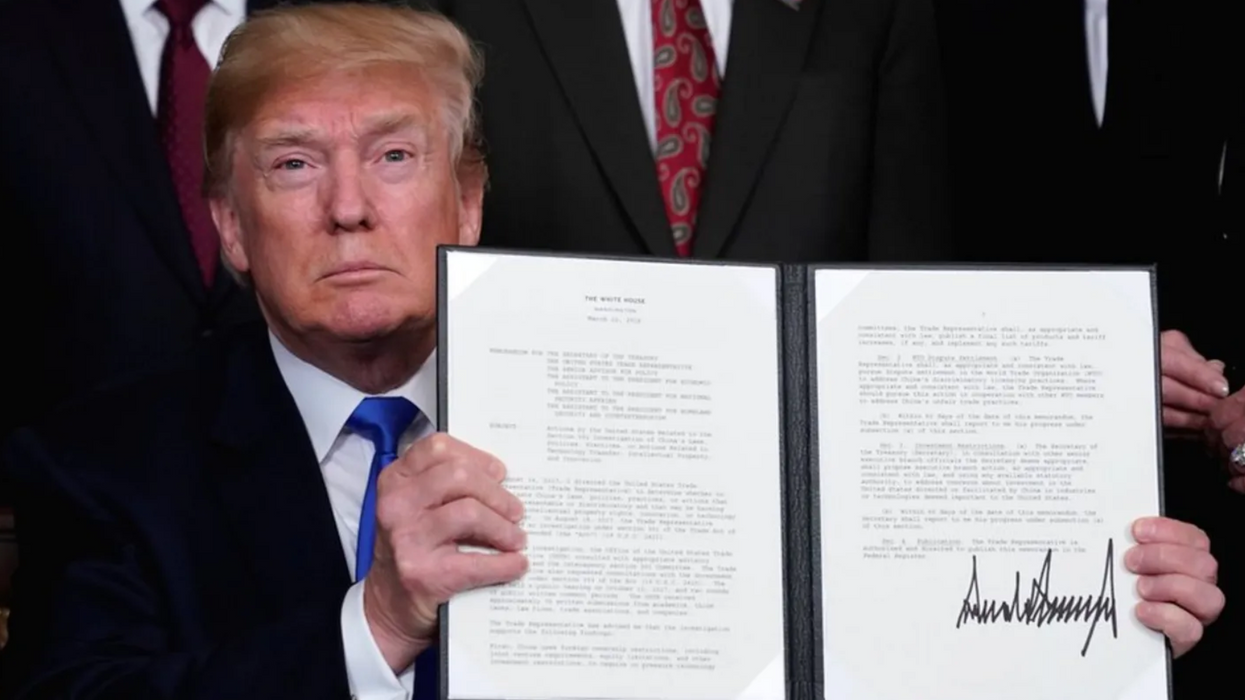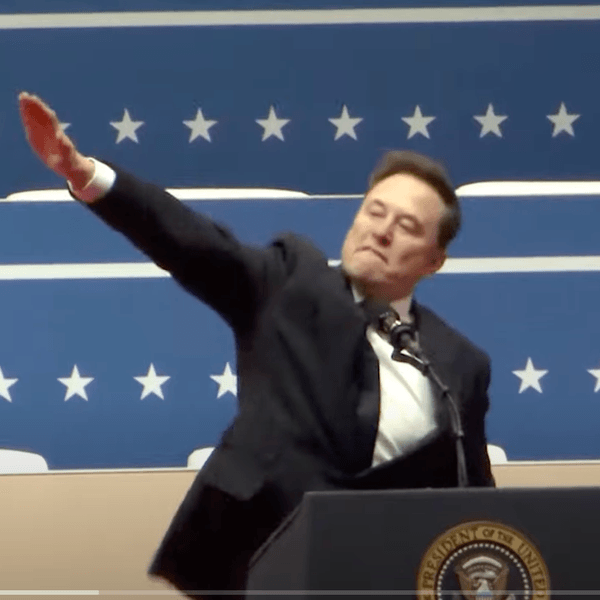Follow Froma Harrop on Twitter @FromaHarrop. She can be reached at fharrop@gmail.com. To find out more about Froma Harrop and read features by other Creators writers and cartoonists, visit the Creators webpage at www.creators.com.
Did Trump Aides Use AI Program To Write 'Slipshod' Executive Orders?
Even though he held the office for four years already, President Donald Trump doesn't appear to have any more sophisticated of an operation when it comes to the drafting of his executive orders, according to one expert's analysis of their text.
Trump has been rolling out a flurry of executive orders since he was sworn in for his second term on Monday. His executive orders have been focused on everything from renaming the Gulf of Mexico to the "Gulf of America" (something Mississippi Democratic state representative Steve Holland first proposed in 2012 legislation aimed at mocking Republicans) to eliminating birthright citizenship for the children of undocumented immigrants.
But on Wednesday, tech publication Futurism reported that some of those orders have questionable wording and formatting suggesting they may have been written with the help of artificial intelligence (AI).
Futurism cited Slate Supreme Court analyst Mark Joseph Stern, who noted that many of Trump's executive orders are formatted in a confusing manner that is commonly associated with AI-generated text. In one example, an executive order entitled "Unleashing Alaska's Extraordinary Resource Potential" has a numbered list of Public Land Orders to be rescinded, but the number one is next to each item.
"The weird typos and formatting errors could lead to confusion down the road," Stern wrote on Bluesky. "If the Secretary of the Interior invoked his authority under Section XV(1) of this order, which of the 6 different subsections labeled 1 would [he] mean? And which number controls when a subsection has two different ones?"
"Lots of reporting suggested that, this time around, Trump and his lawyers would avoid the sloppy legal work that plagued his first administration so they'd fare better in the courts," he wrote he wrote in another post. "I see no evidence of that in this round of executive orders."
"This is poor, slipshod work," Stern continued, arguing that Trump's executive orders were "obviously assisted by AI."
Attorney Raffi Melkonian also accused the new administration of using AI as a crutch, saying Trump's "Gulf of America" executive order was "absolutely written by AI." Stern remarked that it read like a "7th-grade book report."
"The Gulf is also home to vibrant American fisheries teeming with snapper, shrimp, grouper, stone crab, and other species, and it is recognized as one of the most productive fisheries in the world, with the second largest volume of commercial fishing landings by region in the Nation, contributing millions of dollars to local American economies," the order read. "The Gulf is also a favorite destination for American tourism and recreation activities."
Futurism also called attention to other executive orders that "feature questionable errors and structural choices." In the order pulling the United States out of the World Health Organization, Futurism's Maggie Harrison Dupre noticed "inexplicably bolded punctuation." And she suggested that the haphazardly written documents "could lead to trouble down the line for the Trump Administration's attempts at enforcement."
Reprinted with permission from Alternet.











